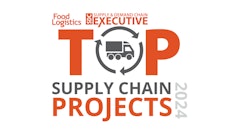IT broadly seen as competitive differentiator in new executive survey from Bain & Company
New York — April 11, 2005 — The influence of technology on management tools choices is taking hold, with the overwhelming majority of executives convinced that technology can give their enterprises a competitive advantage, according to the results of an annual survey from management consultancy Bain & Company.
The ninth edition of Bain's Management Tools & Trends survey shows that technology-influenced tools, such as customer relationship management (CRM), supply chain management (SCM) and knowledge management (KM), have made substantial gains in use since the early 1990s. CRM is now only surpassed globally by the practice of strategic planning as the most-used management tool.
"The business landscape is littered with technology disasters, leading some experts to wonder if IT even matters to competitive strategy," said Darrell Rigby, senior Bain partner and survey founder. "But our survey shows that technology's influence on management tools is maturing and that nine in ten executives feel that information technology can create significant competitive advantages."
Bain launched its Management Tools & Trends survey in 1993 as a multi-year project and has assembled a database that now includes 7,283 respondents from over 70 countries in North America, Europe, Asia, Africa, the Middle East and South America.
The 2005 edition reflects findings from 960 global executives surveyed during 2004, including 212 Chinese business leaders. Executives were asked questions about the use and satisfaction by their companies with 25 of the most popular management tools and techniques. To qualify for inclusion in the survey, a tool had to be relevant to senior management, topical (as evidenced by coverage in the business press) and measurable.
Global Supply Chains a Challenge
Bain said the survey, which is not limited to technology issues, revealed important insights into technology-oriented management trends (and potential impacts on technology budgets), including:
More about Management Tools
Two tools that had appeared to be fads in previous years made a resurgence in 2004 from their satisfaction rankings in 2002, with business process reengineering climbing from 19th to 10th in use and from 20th to 12th in overall satisfaction, and total quality management (TQM) moving from 17th to 7th in satisfaction ranking.
Radio frequency identification (RFID) was by far the least used tool, used by 13 percent of companies surveyed, according to the survey. Bain also noted that CRM had the lowest defection rate of the 25 tools surveyed.
In addition, while 73 percent of respondents said they were using outsourcing as a tool, only 33 percent of companies used offshoring, suggesting that most outsourcing has been "near shoring." And change management programs, a management tool that often accompanies technology initiatives, had one of the lowest satisfaction scores in the survey.
"The odds of success vary widely for different tools," said Rigby. For example, 22 percent of those who use RFID reported that they were extremely satisfied with the tool, while only 5 percent said they were dissatisfied, creating a positive "satisfaction spread" of 17 points (22 percent less 5 percent). So though RFID currently ranks at that bottom of the list of tools used, it demonstrated relatively high satisfaction among users — potentially portending an increase in future use.
Size and Region Matter
The use of technology, and satisfaction with IT, varied by company size. Large companies were more than three times more likely than small companies to deploy RFID, while small companies were more satisfied with outsourcing and knowledge management than large companies.
CRM, TQM and Knowledge Management were evenly adopted technology-oriented tools among small and large companies, the survey found.
Usage rates for the individual tools also varied by region. CRM was ranked first in overall use by Asian companies, second in overall use by European companies, but ninth overall by North American companies.
South American companies were more likely to be satisfied with their CRM efforts than companies in all other regions. Supply chain management is ranked eighth in use Asia but does not show up in the top 10 list of management tools used elsewhere.
New York — April 11, 2005 — The influence of technology on management tools choices is taking hold, with the overwhelming majority of executives convinced that technology can give their enterprises a competitive advantage, according to the results of an annual survey from management consultancy Bain & Company.
The ninth edition of Bain's Management Tools & Trends survey shows that technology-influenced tools, such as customer relationship management (CRM), supply chain management (SCM) and knowledge management (KM), have made substantial gains in use since the early 1990s. CRM is now only surpassed globally by the practice of strategic planning as the most-used management tool.
"The business landscape is littered with technology disasters, leading some experts to wonder if IT even matters to competitive strategy," said Darrell Rigby, senior Bain partner and survey founder. "But our survey shows that technology's influence on management tools is maturing and that nine in ten executives feel that information technology can create significant competitive advantages."
Bain launched its Management Tools & Trends survey in 1993 as a multi-year project and has assembled a database that now includes 7,283 respondents from over 70 countries in North America, Europe, Asia, Africa, the Middle East and South America.
The 2005 edition reflects findings from 960 global executives surveyed during 2004, including 212 Chinese business leaders. Executives were asked questions about the use and satisfaction by their companies with 25 of the most popular management tools and techniques. To qualify for inclusion in the survey, a tool had to be relevant to senior management, topical (as evidenced by coverage in the business press) and measurable.
Global Supply Chains a Challenge
Bain said the survey, which is not limited to technology issues, revealed important insights into technology-oriented management trends (and potential impacts on technology budgets), including:
- Sixty percent of executives felt their IT is completely aligned to their business strategy.
- While one in two executives said their companies usually cut costs when they need to increase profits, 86 percent agreed that innovation is more important than cost reduction for long-term success.
- Sixty-eight percent of executives agreed that excessive complexity is raising their costs and hindering their growth.
- One in two executives agreed that new laws on corporate governance are raising costs without improving governance.
- Only 42 percent of executives agreed that their companies have the capability to effectively manage a global supply chain — though that number increases to 60 percent when asked of executives of large companies.
More about Management Tools
Two tools that had appeared to be fads in previous years made a resurgence in 2004 from their satisfaction rankings in 2002, with business process reengineering climbing from 19th to 10th in use and from 20th to 12th in overall satisfaction, and total quality management (TQM) moving from 17th to 7th in satisfaction ranking.
Radio frequency identification (RFID) was by far the least used tool, used by 13 percent of companies surveyed, according to the survey. Bain also noted that CRM had the lowest defection rate of the 25 tools surveyed.
In addition, while 73 percent of respondents said they were using outsourcing as a tool, only 33 percent of companies used offshoring, suggesting that most outsourcing has been "near shoring." And change management programs, a management tool that often accompanies technology initiatives, had one of the lowest satisfaction scores in the survey.
"The odds of success vary widely for different tools," said Rigby. For example, 22 percent of those who use RFID reported that they were extremely satisfied with the tool, while only 5 percent said they were dissatisfied, creating a positive "satisfaction spread" of 17 points (22 percent less 5 percent). So though RFID currently ranks at that bottom of the list of tools used, it demonstrated relatively high satisfaction among users — potentially portending an increase in future use.
Size and Region Matter
The use of technology, and satisfaction with IT, varied by company size. Large companies were more than three times more likely than small companies to deploy RFID, while small companies were more satisfied with outsourcing and knowledge management than large companies.
CRM, TQM and Knowledge Management were evenly adopted technology-oriented tools among small and large companies, the survey found.
Usage rates for the individual tools also varied by region. CRM was ranked first in overall use by Asian companies, second in overall use by European companies, but ninth overall by North American companies.
South American companies were more likely to be satisfied with their CRM efforts than companies in all other regions. Supply chain management is ranked eighth in use Asia but does not show up in the top 10 list of management tools used elsewhere.
- More research from Bain & Company.

























